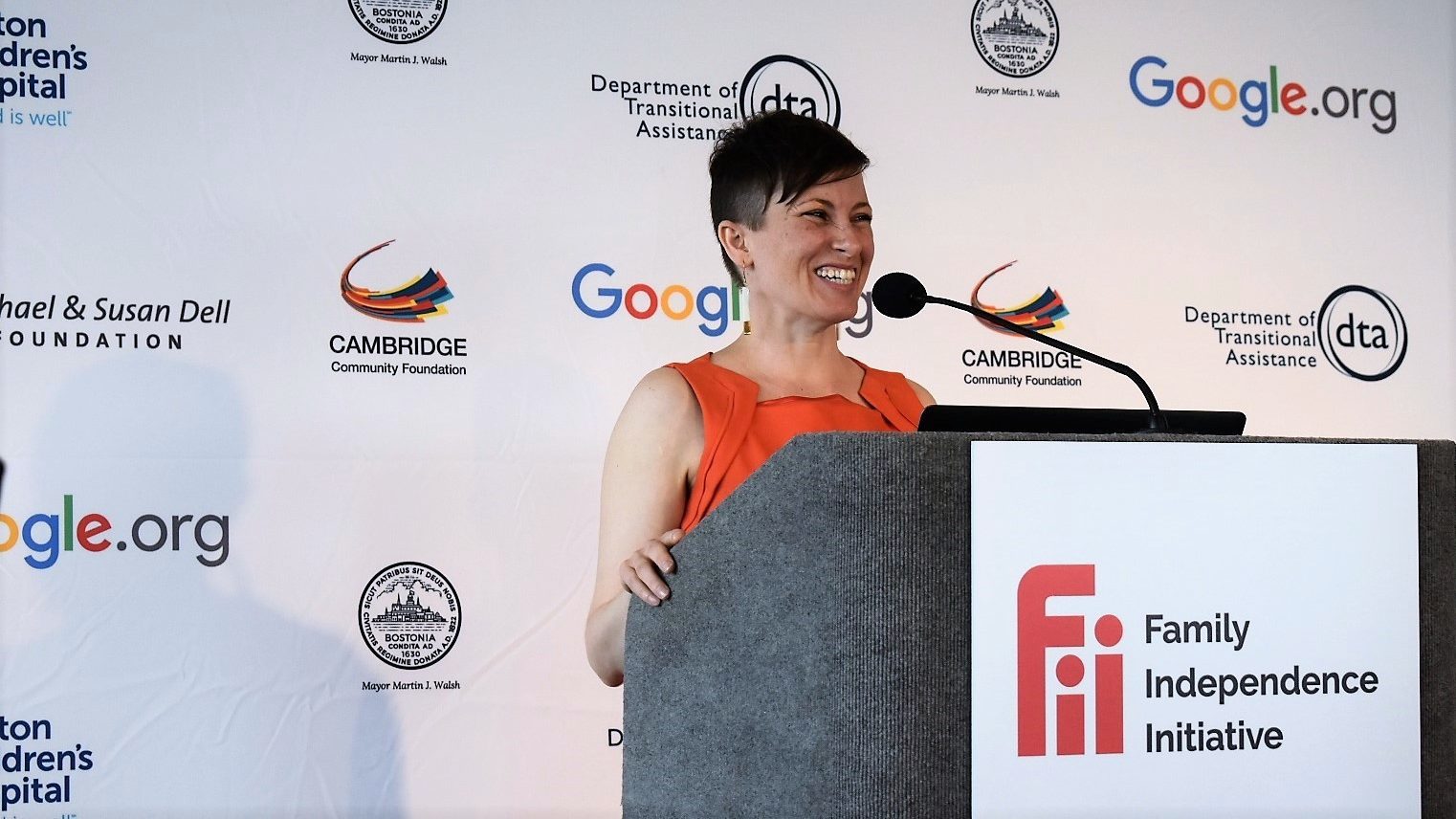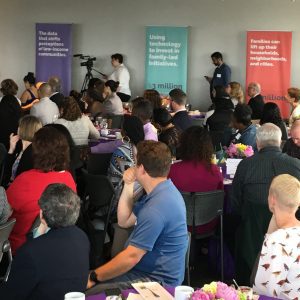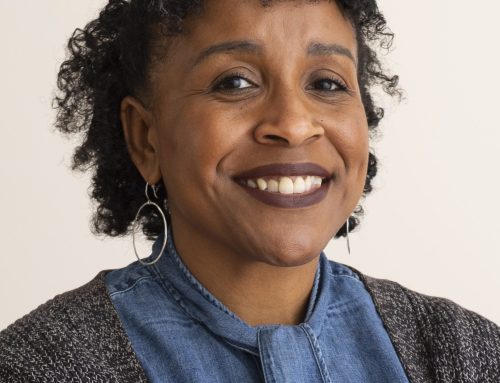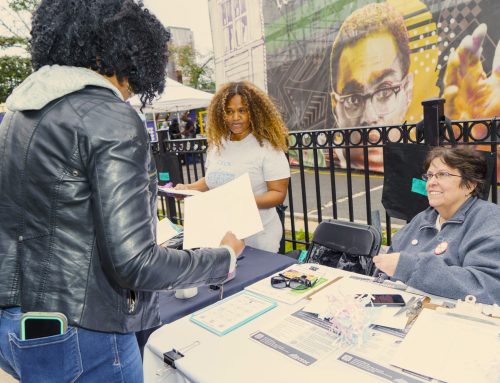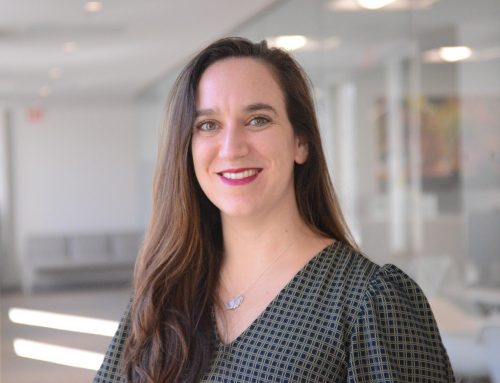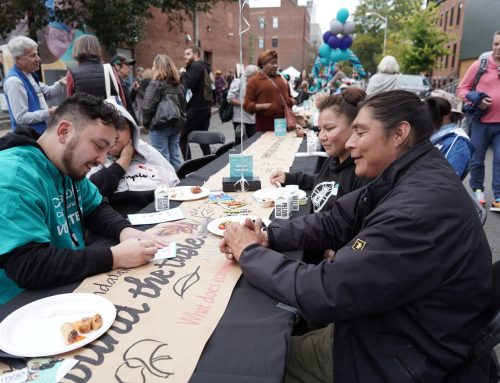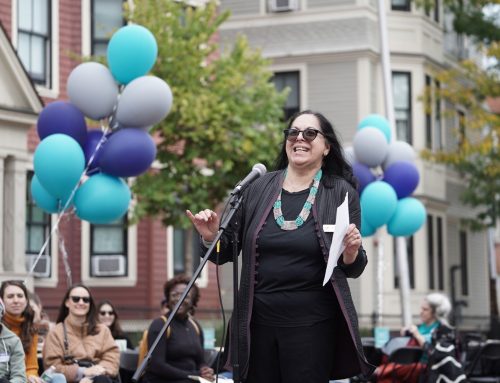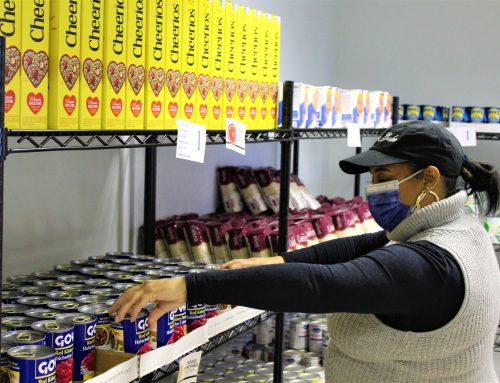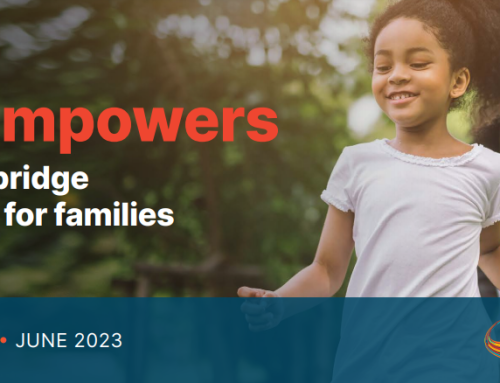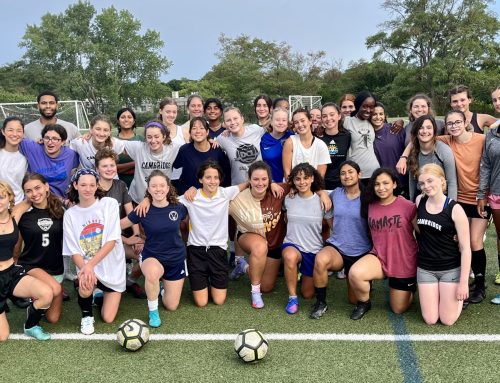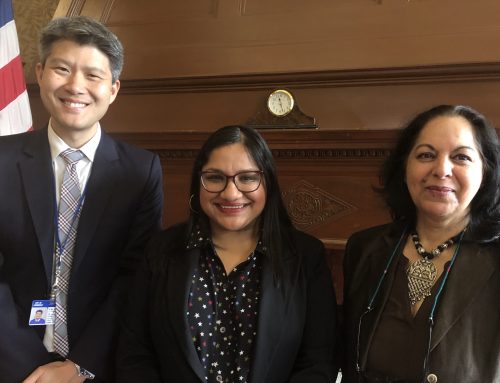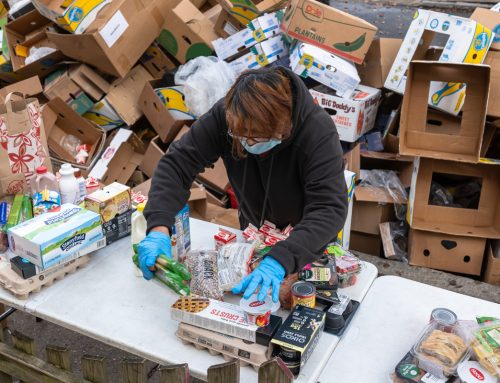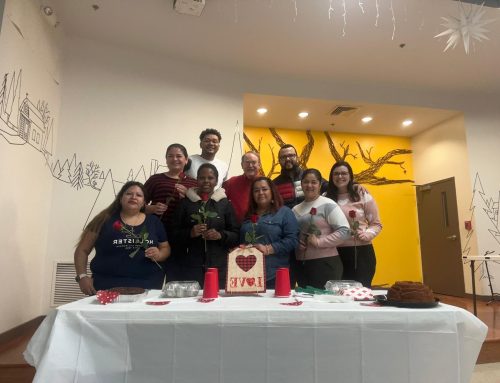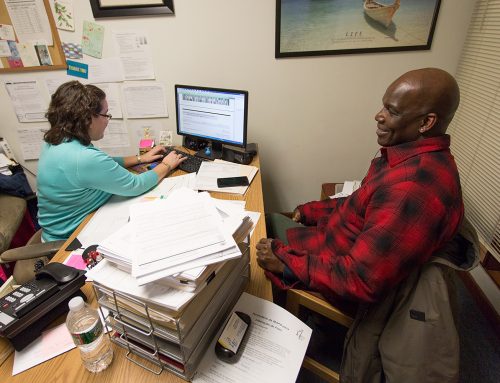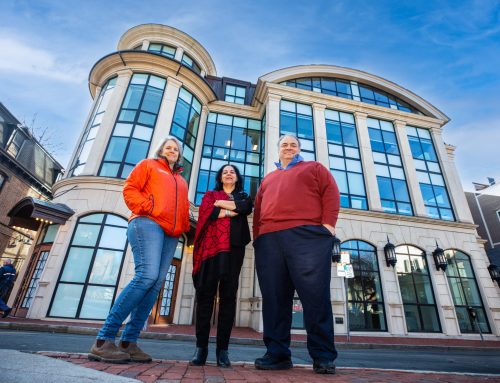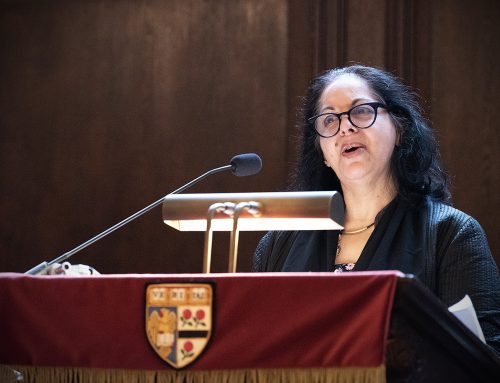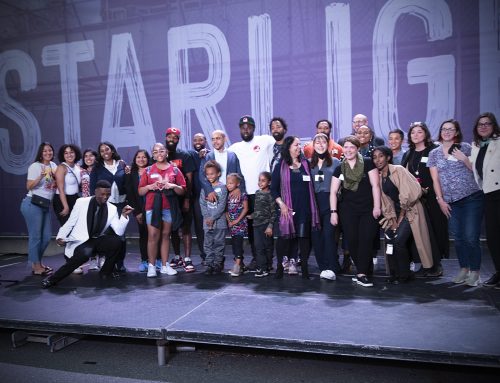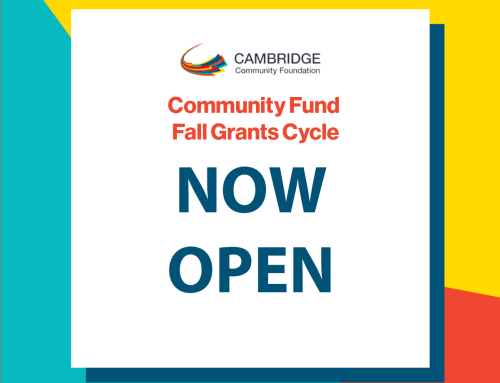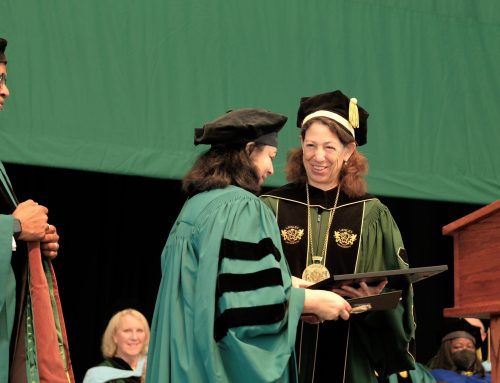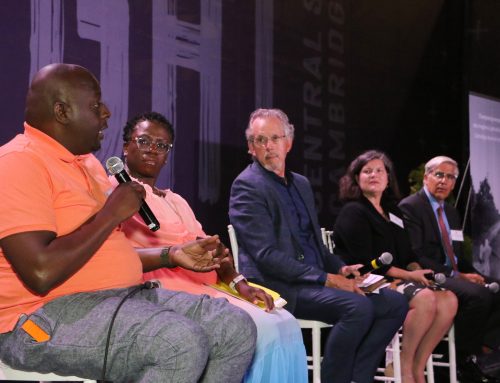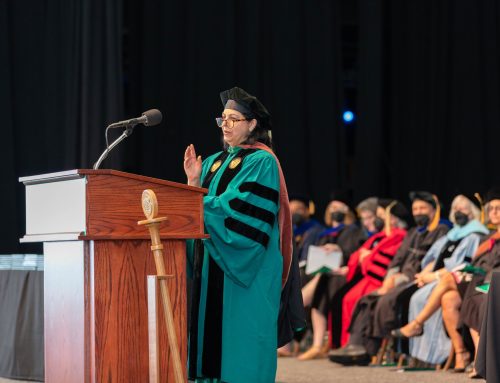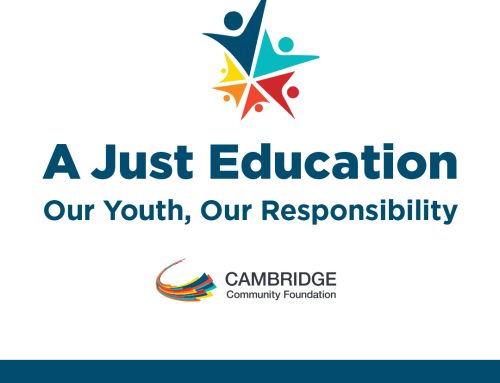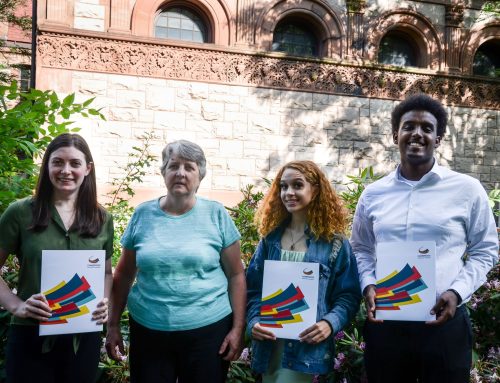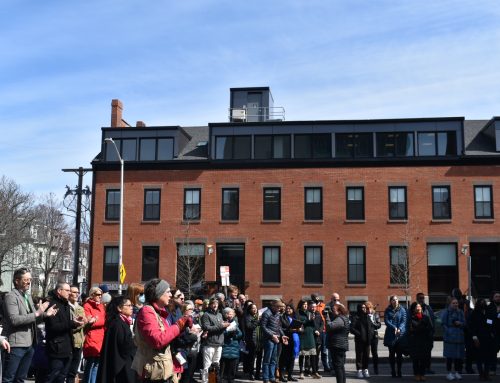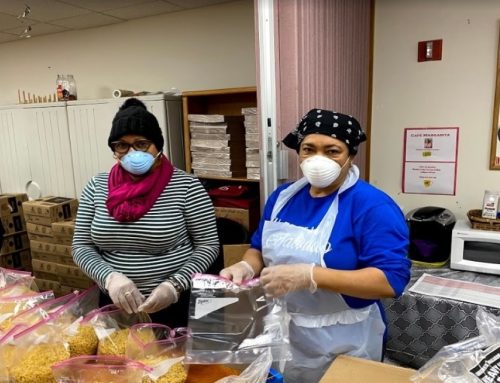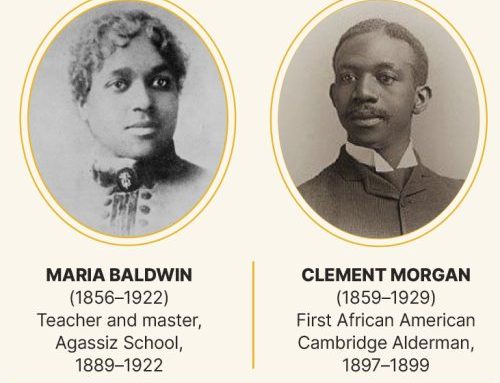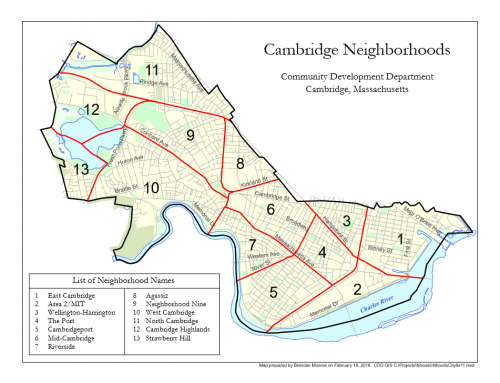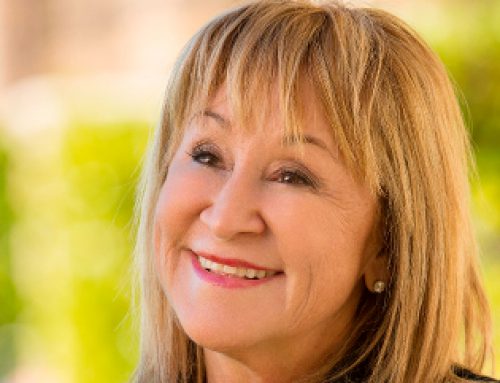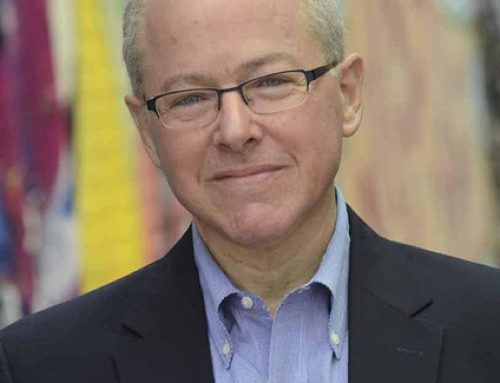On May 20, CCF’s nonprofit partner, the Family Independence Initiative (FII) launched the Trust and Invest Collaborative, a three-year pilot study of FII and the MA Department of Transitional Assistance (DTA), to evaluate the outcomes families living with low-incomes can achieve when they are given access to financial capital and are provided the choice to turn to their own social networks. Four hundred families from Boston and Cambridge receiving economic assistance from the DTA will be given the option to enroll in FII. Findings from the pilot study’s evaluation, conducted by the Harvard Business School, will inform policy recommendations for government, community leaders and philanthropists interested in increasing the social and economic mobility of families living with low incomes.
“We yearn for the cure-all to end racism and to end poverty. But it’s actually the small steps we take together, in community, challenging our assumptions and checking our perceptions, that make the biggest difference. That’s why I’m so excited about the Trust and Invest Collaborative,” said Jessica Taubner, FII Site Director for Family Independence Initiative Greater Boston.
FII helps low-income families generate their own strategies and solutions to build wealth, create economic stability and achieve their dreams through a two-year program that includes small grants and social supports, both in person and online. Of the Boston/Cambridge families who have completed the program so far, on average, the families increased their monthly income by 17% and decreased their reliance on federal subsidies by 77%.
CCF partnered with Family Independence Initiative in 2016 to expand the FII program into Cambridge with a $200,000 multi-year investment that was matched by FII National.
“CCF was a catalyst for FII’s expansion into Cambridge; we funded it and brought various partners together. That’s what’s unique about a community foundation—we convene and catalyze,” said Rick Harriman, Chairman of the Board of the Cambridge Community foundation. “When people think about a foundation, they think only about funding, but FII’s evolution highlights the critical role that community foundations play as civic leaders,” said Harriman. “As a small foundation, when it comes to the issues our city faces, catalytic is what we need to be.”
Several CCF donors and partners contributed an additional $400,000 towards asset-building to enroll 100 local families in FII and to support the enhanced FII model, including the Why Wait Fund. FII just received an additional $300,000 grant from the Wagner Foundation, bringing their total investment in FII to $400,000. FII also counts Google.org as an important local partner. Google has invested $3.5 Million in FII’s growth nationally, with $1 Million going towards the Trust and Invest Collaborative. A fascinating aspect of the Google/FII partnership is the contribution of six Google Fellows, who partnered with FII families over six months to capture data and enhance analytics related to the exchange of social capital — a critical component of support among low-income families that has monetary value but without the exchange of money.
For CCF, this is an important move — we seed local investment in evidence-based strategies with a high-quality nonprofit partner, bring philanthropy together for collective impact, and let ideas grow with the contributions and engagement of corporate, government and philanthropic sectors. We will keep you updated on this important effort and look forward to seeing our region’s families thrive!
Learn more about the Family Independence Initiative at https://www.fii.org/.

